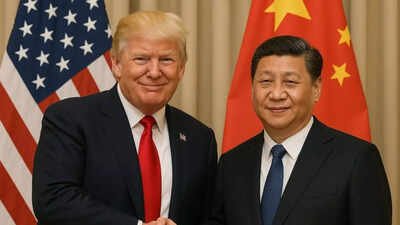
In the bustling corridors where black robes and white neck bands gleam, where freedom of conscience is often weighed against the scales of law. While presiding over a petition on regulation of forced conversions, Hon’ble Chief Justice of India BR Gavai framed the central dilemma with disarming simplicity, “Who would find out that a religious conversion was deceitful or not?”
This was a moment of judicial inquiry and socratic clarity, a reminder that the Constitution’s promise of freedom of conscience embedded in Article 25 is not to be casually invaded by overzealous legislations or executive edicts.
His Lordship’s skepticism was not only rational but necessary because without objective standards, the policing of crimes risks turning into policing of freedom and faith. Yet, in another courtroom exchange, a remark passed by His Lordship left many puzzled and hurt.
While dismissing a plea for restoration of a damaged Lord Vishnu idol in Madhya Pradesh, the Chief Justice is reported to have told the petitioner: “Go and ask the deity itself to do something now.” The statements have echoed as a cruel jest at the devotion and faith of millions.
At stake in these exchanges is not interpretation of laws but the soul of secularism. The Constitution of India enjoins upon the Courts the duty to safeguard fundamental rights, including the right to profess and practice one’s faith with dignity. Article 25 is not a pious declaration but a binding command in the great symphony of rights. The Supreme Court itself held in S.R. Bommai case that secularism is part of the basic structure. It does not mean derision of faith but equal respect.
There are countless precedents where the apex court has declined the relief without diminishing the dignity of belief. In Ismail Faruqui v. Union of India (1994), the Court examined the Ayodhya dispute with constitutional sobriety, distinguishing between matters of faith and matters of property without descending into ridicule. Similarly, in Bijoe Emmanuel v. State of Kerala (1986), the Court stood firm to protect three Jehovah’s Witness children who refused to sing the national anthem, holding that sincere faith deserves constitutional shelter even against the might of the state.
Similarly, the plea of upholding the fundamental right to worship the deity in wholeness could have been resolved with a direction to approach the appropriate authority. Instead, the courtroom quip has left devotees wondering whether their sentiments and beliefs have been trivialized. Perhaps His Lordship was amiss in that moment that the Constitution does not enshrine faith as a fragile ornament but as a force deserving the robe of equal dignity.
It is pertinent to bear in mind that this is not about shielding a certain religion and the practices from scrutiny or about elevating mythology into legal argument. It is about judicial conduct which has dimmed like a fading lamp in the temple of justice. When the court mocks, even in jest, it mocks the Constitution itself and risks making a farce of its own foundation.
As Justice Krishna Iyer once wrote, “The rule of law flourishes not in the rhetoric of power but in the reverence of fairness.”
It is high time that the reality of Hindus be acknowledged and the cornerstone of secularism be appropriately interpreted. Hinduism and Sanatani followers are uniquely cast in the diaspora of nations. There exists a plurality of sovereign sanctuaries for other religious sects, the west, the middle east and even most of the south east.
Hindus have but only one sanctum sovereign. In this light, such a throwaway remark from the guardian of the constitution appears to have wounded the faith of the global minority in their only haven, with indifference. True secularism lies in treating all beliefs and religious sects with equal sensitivity and respect. Secularism ought not be equated with selective disregard and mockery to align with the popular woke culture.
Momentarily, perhaps it escaped his Lordship’s otherwise perceptive notice that he had taken an oath not to Buddhism, not to Hinduism, not to any ‘isms’, but to upholding the integrity of the Constitution of India. And that Constitution, in his and so many other’s beliefs “the Ambedkarite Charter”, promises not just freedom to practice religious beliefs but also the dignity of belief and worship. It is essential to distinguish between judicial rulings and individual beliefs. Lest, it puts the independence of judiciary at peril, diminishes the stature of the bench and erodes the public trust in the justice system.
Declining relief is well within judicial prerogative. Declining dignity, however, undermines the very sanctity of the bench itself. These instances are a humble reminder that the courtroom is not a theatre, petitioners are not there to be entertained at the cost of their pleas and the Hon’ble judges ought to uphold the honour they so claim. If the faith is to be protected from coercion, it must also be protected from casual derisions.
Post Scriptum: If contempt must be found, let it begin at home, with conduct and conscience. Seated at the pinnacle of the nation’s temple of justice, what greater contempt could there be than when the guardian of the Constitution wounds the very Charter that it guards?
Disclaimer
Views expressed above are the author’s own.
END OF ARTICLE





